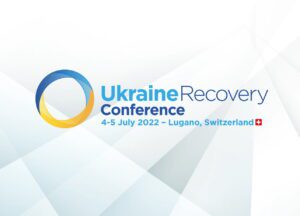
Wealthy Russians subject to U.S. sanctions may try to evade them by investing in the U.S. commercial real estate market, the U.S. Treasury’s Financial Crimes Enforcement Network (FinCEN) warned. The regulator urged U.S. banks to be vigilant, noting that the complex financing schemes and opaque partnership structures used in this market can help hide funds, writes The Wall Street Journal. FinCEN is the recipient of suspicious activity reports that financial institutions are required to file when they detect signals that a transaction is potentially illegal. The warning for banks issued by the regulator on Wednesday is another attempt by the U.S. Treasury Department to prevent wealthy Russian citizens from circumventing financial sanctions, the WSJ notes. “Thanks to international pressure and economic restrictions imposed on Russia by more than 30 countries, there are fewer and fewer opportunities for sanctioned Russian elites to move and hide their ill-gotten gains,” said Himamouli Das, acting head of FinCEN. The regulator outlined a number of signs and “red flags” that should alert banks. For example, sanctioned Russians may try to use investment pools or offshore funds to avoid inspections, he warned. Banks are usually not required to identify people who own less than 25% of shares in the funds. Thus, sanctioned individuals can reduce their stakes to avoid scrutiny while still retaining control of the fund, FinCEN says. They may use front companies and multi-level schemes involving multiple legal entities or trusts, as well as transfer assets to other family members or business partners to hide their involvement, the regulator warns. It notes that sanctioned individuals may not only invest in high-end and luxury real estate. In some cases, they may look for more discreet investments that provide a stable income without attracting unwanted attention. Using such strategies to evade sanctions is just as likely in small and mid-sized U.S. cities as it is in metropolitan areas, FinCEN notes. Last year, the regulator issued a similar warning to banks, advising them to pay close attention to transactions involving art, luxury yachts and jewelry.

On July 4, an international conference for the restoration of Ukraine started in Lugano, Switzerland. Among the main decisions taken on the first day of the conference, one can single out the approval of a plan to provide Ukraine with macro-financial assistance in the amount of $750 billion. Of this total, from 150 to 250 billion is expected to be directed to the restoration of infrastructure and housing damaged as a result of hostilities.
At the same time, the mechanisms for the practical implementation of this project remain unclear in the context of the ongoing war and the need to adapt legislation to it and establish partnerships between the state and private companies. Portal Open4business turned to Igor Stakovychenko, an expert in the field of construction and real estate, for a comment.
In his opinion, the practical implementation of the project should be started now at all levels, since delaying the process can lead to negative consequences in the autumn-winter period.
“Mechanisms for allocating funds from the confiscated assets of the Russian Federation and its large businesses are already being implemented by individual countries. We, in turn, need to implement the conversion of these financial assets into specific infrastructure and construction projects by creating representative offices in donor countries and coordination centers in Ukraine,” said Ihor Stakovychenko.
The expert also stressed that the regional principle of recovery, now promoted by the country’s leadership, when a separate partner state is engaged in projects in a separate Ukrainian region, is the most effective at this stage.
In addition, Igor Stakovychenko suggested creating a system of decentralized funding for the implementation of individual projects at the local level.
“But we must not forget about our responsibility to our partners. It is necessary not only to minimize, but to completely exclude the possibility of misuse of foreign aid by local officials. To do this, it is necessary to create a separate trust fund for each individual restoration project, the activities of which will be as transparent and controlled as possible by both the Ukrainian anti-corruption authorities and the donor country,” Ihor Stakovychenko emphasized.
According to the expert, the basis for the creation of such funds should be existing budget programs, as well as amendments to the main financial document.
“In fact, now we can receive funds both in the form of direct assistance and in the form of investments from partners. Here it is important to successfully implement and present the first major restoration projects, which will help increase investment attractiveness even in the current conditions,” added Igor Stakovychenko.
CONSTRUCTION, EXPERT, FINANCE, MARKETS, REAL ESTATE, RESTORATION_OF_UKRAINE, TECHNOLOGY, ІГОР_СТАКОВИЧЕНКО, СТАКОВИЧЕНКО

On July 1, the “Register of Destruction” is launched in Ukraine. With its help, homeowners whose houses and apartments were damaged as a result of hostilities and enemy shelling will be able to apply for compensation using the Diya application.
At the same time, the question of what the restored houses of Ukrainians will be like, taking into account the new realities and requirements for the housing stock after the war, remains no less important. The Open4business portal discussed these issues with Igor Stakovichenko, an expert in the field of construction and real estate.
“The introduction of the “Register of Destruction” will greatly simplify the procedure for compensating for damages for affected citizens. In fact, such a registry will bring together all the data on the destruction in the country. This will be very useful both for the state of Ukraine and for individual citizens when receiving compensation from the aggressor through international legal institutions,” the expert noted.
As for the new technologies that will be used in the construction of housing, here Stakovichenko recommends first of all to focus on the needs of society.
“What most people want from a new home, whose homes have been destroyed by the war, is reliability and security. The presence of equipped bomb shelters, convenient evacuation routes, autonomy – these are the criteria without which it is difficult to imagine post-war architecture,” Igor Stakovichenko stressed.
In his opinion, a good option would be the restoration and development of numerous recreational areas, some of which were abandoned even before the war. Stakovichenko believes that many Soviet-built sanatoriums and boarding houses, which have been practically not used for all the years of independence, can become a good platform for building eco-friendly settlements with autonomous service, since most of the communications have already been connected to them.
“Environmental friendliness and high technologies during construction will also become the hallmark of post-war architecture in Ukraine. Projects such as “zero energy houses”, or even “mini-power houses”, which are now being widely implemented in the EU, will also be popular after the war,” the expert added.
At the same time, Igor Stakovichenko sees no special prospects for aggressive development in the central areas of large cities, which was practiced before the war.
“Multi-apartment residential complexes in large cities will certainly continue to be built, but whether there is a buyer for such housing is already a question. I think many have already revised or will reconsider their views on comfortable housing as a result of the war,” the expert concluded.
CONSTRUCTION, EXPERT, FINANCY, IGOR STAKOVYCHENKO, MARKETS, REAL ESTATE, TECHNOLOGY, СТАКОВИЧЕНКО

The European Union proposes to ban real estate transactions in the territory of the union with citizens, residents and legal entities of the Russian Federation within the framework of new sanctions against Russia, Bloomberg reports with reference to a document on the planned sanctions.
“The proposal of the European Commission provides for the termination of real estate transactions with Russian citizens, residents and legal entities, prohibiting the sale or transfer, directly or indirectly, of “ownership rights in real estate located in the territory of the Union, or shares in collective investment enterprises providing access to such real estate,” the agency writes.
The proposed ban applies to Russians who are not EU citizens and do not have a residence permit in the union countries. The measure does not apply to those who have citizenship or a residence permit in the European Economic Area or Switzerland.
Bloomberg notes that the measure itself will come into force if the corresponding proposal is approved by EU member states this week.
Earlier on Wednesday, the head of the European Commission, Ursula von der Leyen, said that among other sanctions proposed by the European Commission are the disconnection of three Russian banks, including Sberbank, from the SWIFT international payment system, a ban on broadcasting in the EU of three major state-owned Russian television channels, as well as a ban on providing Russian companies of services of a number of European specialists. In addition, the EC is proposing a phase-out of Russian oil imports, which von der Leyen said should take six months and be completed by the end of 2022.

The Cabinet of Ministers of Ukraine has approved the powers of notaries in certifying real estate transactions during martial law, the press service of the Ministry of Justice reported.
According to the relevant resolution of the Cabinet of Ministers, notarial certification of contracts on real estate transactions is allowed only to those notaries who were included in the relevant list of persons who are allowed to carry out notarial acts in relation to valuable property during martial law.
In addition, such actions are prohibited for notaries whose workplace is located in territories where access to unified and state registers has been terminated, in particular, in the temporarily occupied territories of Ukraine.
It is also prohibited to sell real estate within one month from the date of state registration of ownership, as well as real estate transactions by proxy.
Certification of contracts for the sale of real estate, mortgages, trusts is allowed only at the location of the property. At the same time, in Kyiv and the Kyiv region, notarial actions with real estate are allowed only for local notaries, if the property or legal entity is located in this territory, or at the registered place of residence of an individual – one of the parties to the agreement.
Such conditions will be in effect during martial law for one month after, the Ministry of Justice notes.